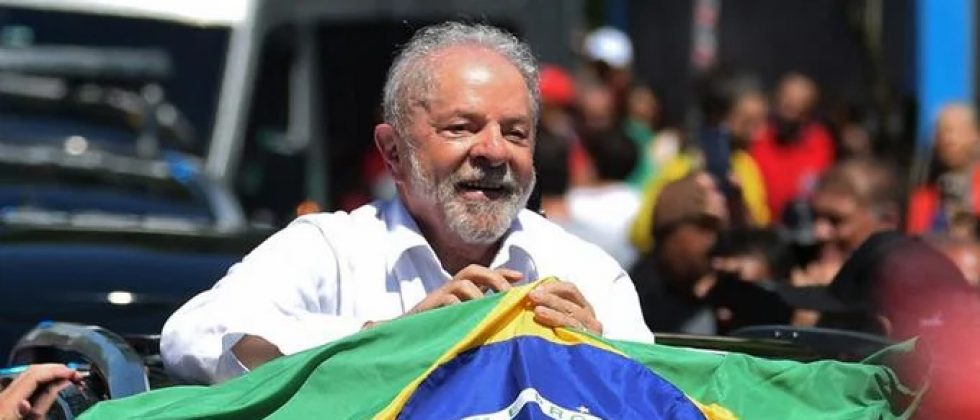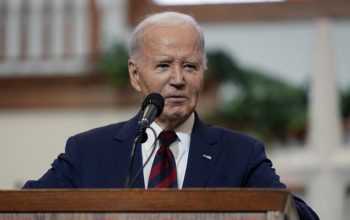news
“Lula: From Death to Resurrection”, an article by Dr. Leonel Fernández
November 7, 2022
At the end of his two terms in office, from 2003 to 2011, Luiz Inácio Lula da Silva had an approval rating of more than 80%. He became a sort of “rock star” of world politics. Former U.S. president Barack Obama stated that the Brazilian star was the most popular politician in the world. Lula had reached these approval levels due to the great achievements reached during his eight years in office, where the Brazilian economy went from number 10 to being the sixth largest in the world. He tripled the country´s GDP per capita. Unemployment fell significantly. He managed to lift nearly 40 million citizens out of indigence and poverty; and expanded the middle class, something never seen before in the country.
In order to achieve the abovementioned successes, he introduced innovative and the application of social policy programs. He implemented the “Fome Zero” (Zero Hunger) program to guarantee universal access to adequate and nutritious food. He also introduced the “Borsa Familia” (Bolsa Familia) program, which consisted of the transferring of financial aid to poor families. At the international level, Brazil, during the Lula Administration, managed to consolidate its position as a leader in Latin America, and promoted regional integration.
He sponsored the expansion of Mercosur. Emerging nations came together to form the BRICS (consisting of the five major emerging economies: Brazil, Russia, India, China and South Africa). His Administration also protected the Amazon, considered to be the lung of the world; and organized the second Earth Summit, Rio+20, on sustainable development.
Respectful of his country´s Constitution, which prohibited him from a third consecutive presidential term, he supported the candidacy of his Chief of Staff or Secretary of the Presidency, Dilma Rousseff, who was victorious during the 2010-2014 electoral process. She was later reelected for a second term, from 2014 to 2018.
From Shoe-Shine Boy to the Presidency
Born in the impoverished federal state of Pernambuco, better known as León del Norte, Lula da Silva is the seventh of eight children of a family of farmers. During his childhood he moved, along with his mother and his siblings, to Sao Paulo, the country´s most important city. Due to the needs of the family, he had to drop out of school in fifth grade. At the age of 12, he began working as a shoe-shine boy and, later, as a street vendor. Still in his teens he got a job at a bolt production plant, where he worked 12 hours a day. He completed a mechanics course at a technical-vocational school. He lost a part of his pinky finger in his left hand when he manipulated a hydraulic press. His first approach to politics came through the metallurgical union. Over time, he became the union leader and led the great strikes of the late 1970s and early 1980s, in the midst of the military dictatorship. He was imprisoned, and as a result of those experiences, he came to the conclusion that in order to truly defend the rights of workers, it was necessary to move from the trade unions to the creation of a political party.
And so, it happened. In 1980 he was one of the founders of the Workers’ Party (PT), which would become the main political force in Brazil. Six years later he was elected legislator, precisely at the time of transition to democracy in his country. From then on, Lula began a stage in his life that led him, unsuccessfully, to conquer the Presidency of the Republic. In 1989 he faced Fernando Collor de Melo for the first Office and, although he had great popular support, he was defeated during the second voting round. He returned as a candidate in 1994, and again in 1998. On both occasions he unsuccessfully faced the prominent center-left sociologist, Fernando Henrique Cardoso, who had gained great prestige and authority due to his plan to reduce the hyperinflation and unemployment that had affected the South American nation in the 1980’s.
With three consecutive defeats, Lula became a political castaway, without a future to look forward to. However, the economic crisis at the end of the 1990s and the beginning of the millennium would open the doors of the Planalto Palace to him. In the 2002 elections, Luiz Inácio Lula da Silva was finally elected president of the Federative Republic of Brazil.
Lula: Rise Up and Walk!
In his inaugural speech Lula, with tears in his eyes, said: “I, who so many times was accused of not having a university degree, am now receiving my first diploma: the title of President of the Republic of my country.” His performance during his first government led to his re-election in the 2006 elections. But, at some point, that re-election was subjected to serious risks. It was when the accusation of corruption appeared on the national spectrum. It was an action typified as bribery, and known in Brazil as the Mensãlao. That is, the monthly payment made by the ruling party to opposition legislators. The Lula government was finally able to weather the storm of the scandal and crowned itself with a new victory in the presidential elections. At the end of his second term, Lula began what in biblical terms could be considered his journey through the desert.
He was diagnosed with throat cancer. His wife of 30 years, Maria Leticia, passed away. Due to the Petrobras corruption scandal, identified as Lava Jato, Judge Sergio Moro sentenced Lula to nine years in prison. He spent a year and seven months deprived of liberty. That time coincided with the 2018 elections where he headed all the polls. But he was prevented from participating in the electoral process leading to the victory of Jair Bolsonaro, a former military officer with authoritarian tendencies.
The sentence against Lula was annulled by a Supreme Court justice. This allowed his return to the political sphere and to a realignment of forces on the Brazilian electoral map. On October 28, one day after his 77th birthday, he achieved what no one else had been able to accomplish: he was reelected president of Brazil for a third period. It was the triumph of truth and justice over evil and lies. Lula, like the Phoenix, arose triumphantly twelve years after having ended his last Administration.
He himself explained the situation in his own words: “I believe that I have gone through a resurrection process in Brazilian politics. They tried to bury me alive and now I am here to rule the country.”
We wish you success in this new encounter with history.





